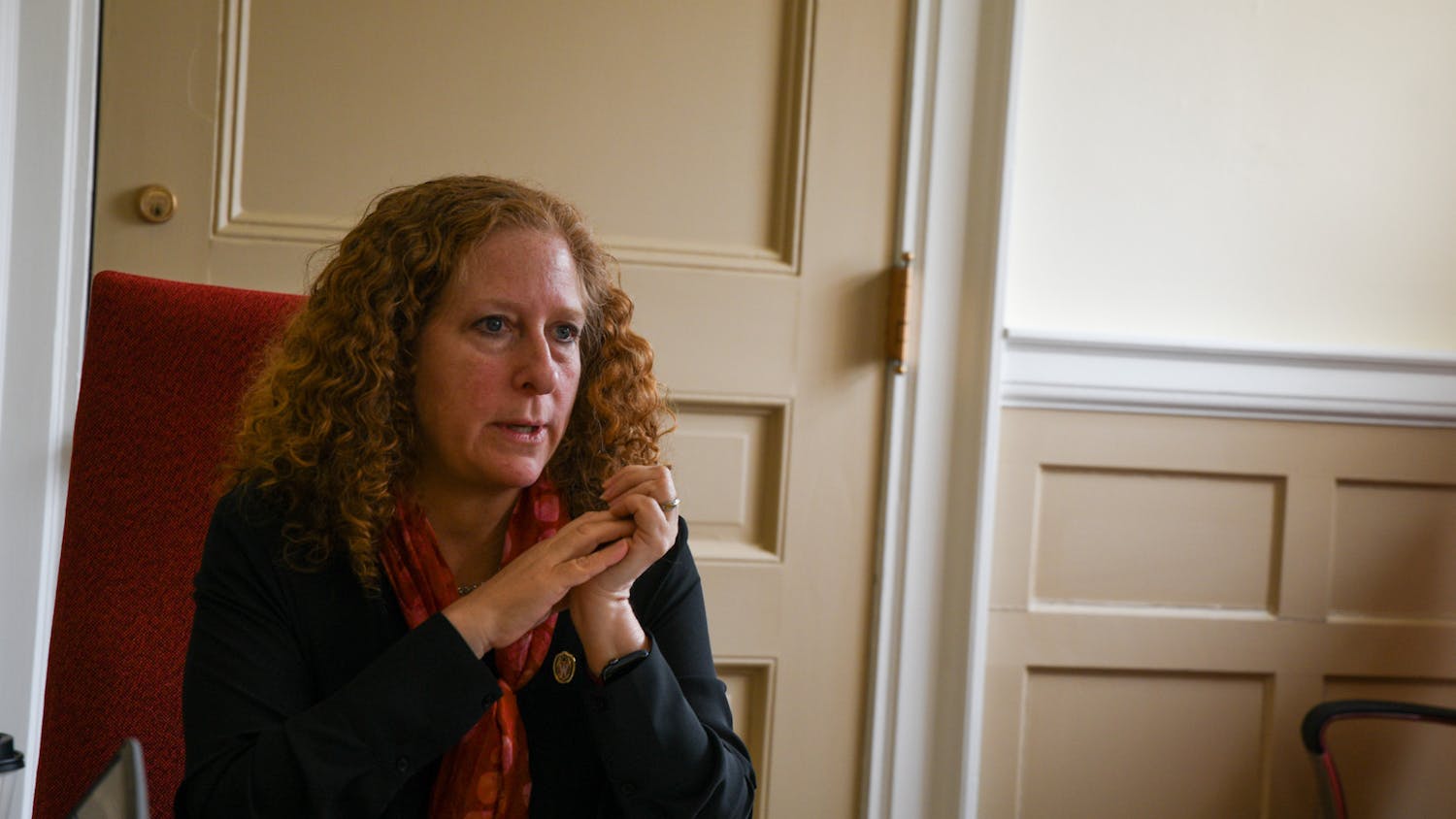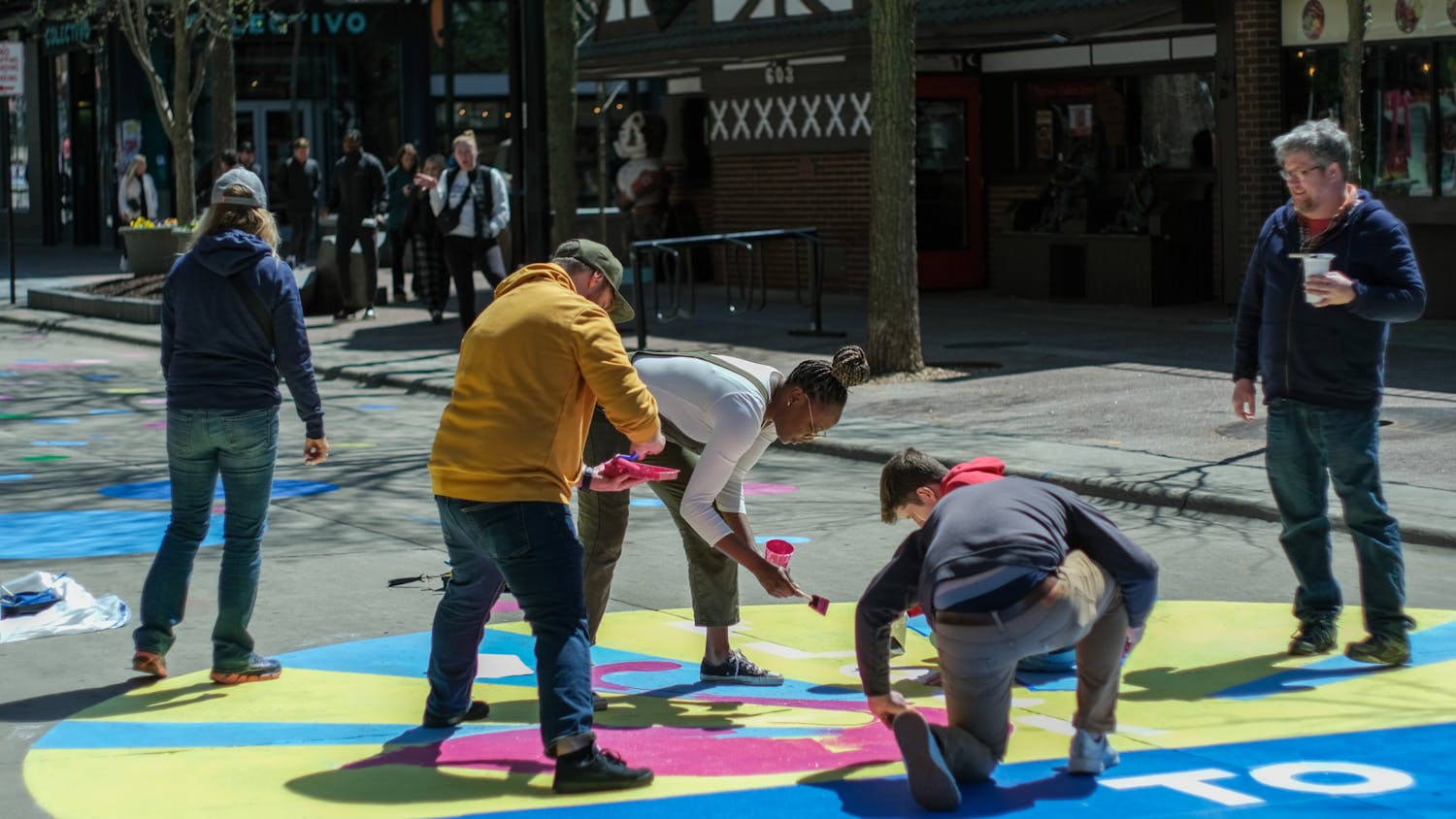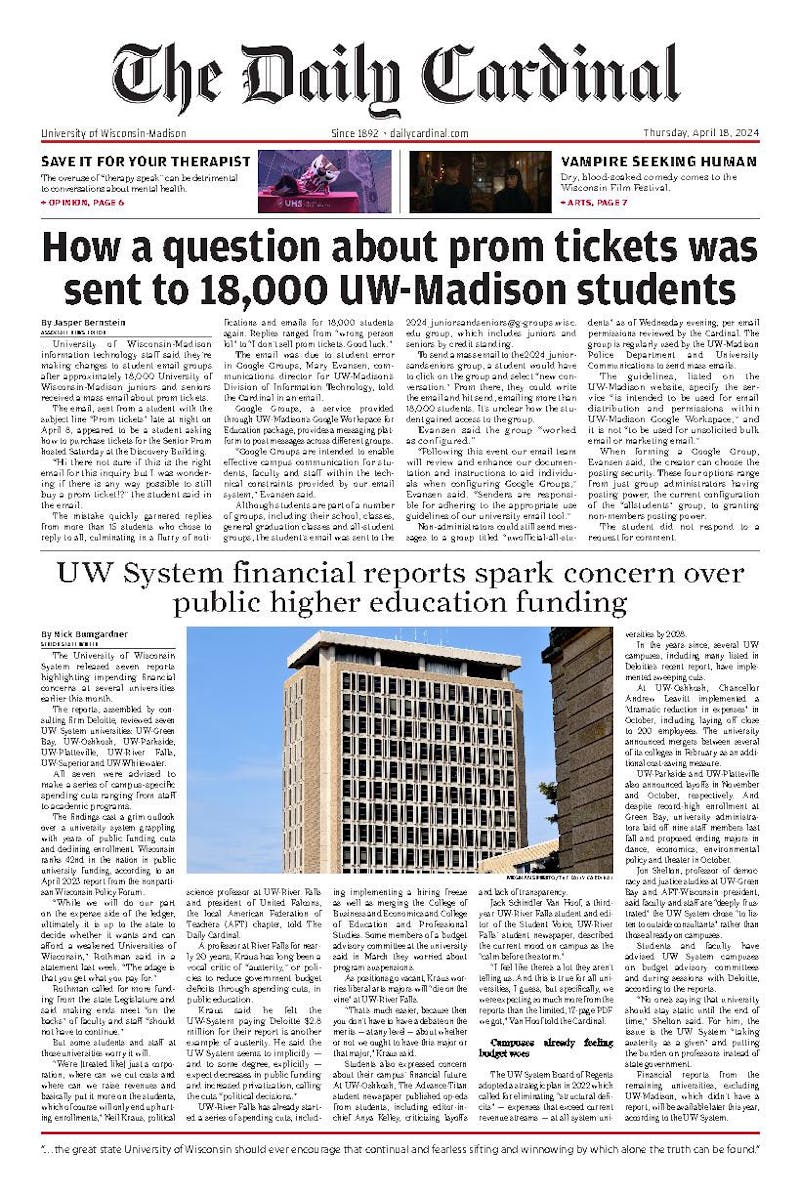At the No. 1 party school in the nation, encountering party culture around campus is not surprising outside of the classroom. But when references to drugs and alcohol leave basement house parties and surface in classroom discussion, some students say they promote high risk behavior, marginalize the experience of those who choose not to drink and challenge the image of the university.
In its Alcohol Statement, UHS writes that “changing the culture around high-risk drinking is a priority. We recognize that everyone plays a role in promoting an environment that supports responsible drinking.”
But, according to Carter Kofman, chair of recovery group Live Free, substances still find their way into classroom discussions where, for sober students like him, it is both uncomfortable and unavoidable.
“It confuses me most of the time why it is even mentioned. I just don’t think that is the best thing to talk about in classrooms,” Kofman said. While he does not remember specific times that alcohol was discussed inappropriately in the classroom, he added that party culture in general is not just irrelevant to academics, it also creates a hostile learning environment.
“When there are jokes about not remembering what you did that weekend or blacking out, it makes me feel different than my fellow classmates, like I’m not normal,” Kofman said. “It brings me back to the time when I was doing it, and all of the reasons why—the escape, the coping. Then I look around my 100-plus person lecture and I know that there have got to be other people who feel the same way or have gone through something similar.”
For other students, staying sober is a matter of religion and identity. Zahra Bashir, who refrains from substance because of her Muslim faith, has never encountered party culture in class but understands how it would make students like her feel unwelcome.
“Thankfully, in the classroom setting, I’ve never felt uncomfortable. But [most] students do not know that the majority of other students don’t drink like that,” Bashir said. “But I would still want to feel safe no matter what in an academic setting.”
Steven Cramer, vice provost for teaching and learning, agreed that the presence of substance in class should be treated with great sensitivity.
“Certainly at a minimum, joking about alcohol use or making light of it as nothing is simply inaccurate and unfortunately contributes to this very light hearted attitude about alcohol when it’s really a fairly serious issue,” Cramer said. “That’s where there’s a communication gap within the general academic community. I don’t think there’s a general awareness of how serious this is.”
Some professors also agree that party culture is a widespread problem on campus and that it has no place in the classroom.
“Alcohol use on this campus is a problem because there are too many students who don’t use alcohol wisely. Most professors that I know will not bring it up,” Edwin Sibert, who is teaching Chemistry 103 this semester, said.
According to Alcohol, Tobacco and Drugs Prevention Coordinator Jenny Rabas, thoughtless comments about alcohol in the classroom can contribute to wider feelings of alienation, which can translate to poor academic performance and a negative campus experience.
“It can be really isolating to feel like you don’t belong,” Rabas said. “I think it’s important that we reframe the way we talk about alcohol in the classroom so that we’re not intentionally isolating people.”
Students of color, who on average consume less alcohol than their peers, as well as students who are in recovery, are especially vulnerable to the type of disconnection Rabas describes. However, students who choose to drink moderately or stay sober can be targeted by remarks that normalize drinking culture.
“There’s no acknowledgement of the fact that there are people out there who can’t drink normally,” Kofman said. “When people in a position of power make remarks on things that shouldn’t be normalized, those things become normalized. It makes me not want to go to class.”
While UW-Madison’s first top party school title from The Princeton Review since 2005 may be new as of last fall, alcohol consumption on campus has actually trended down over the past five years, according to data collected by Division of Student Life programming. Cramer said that his office works constantly to promote a safer drinking culture and a more inclusive climate for students like Kofman and Bashir.
According to Kofman, there is still a long way to go.
“The first step is us talking to students and faculty,” he said. “We really do need to open up a conversation about stigmatizing language in the classroom. I think that a dialogue about drinking culture is important.”
UPDATE Feb. 13, 12:53 p.m. This story was updated to correctly spell the last name of two interviewees, Carter Kofman and Jenny Rabas.






